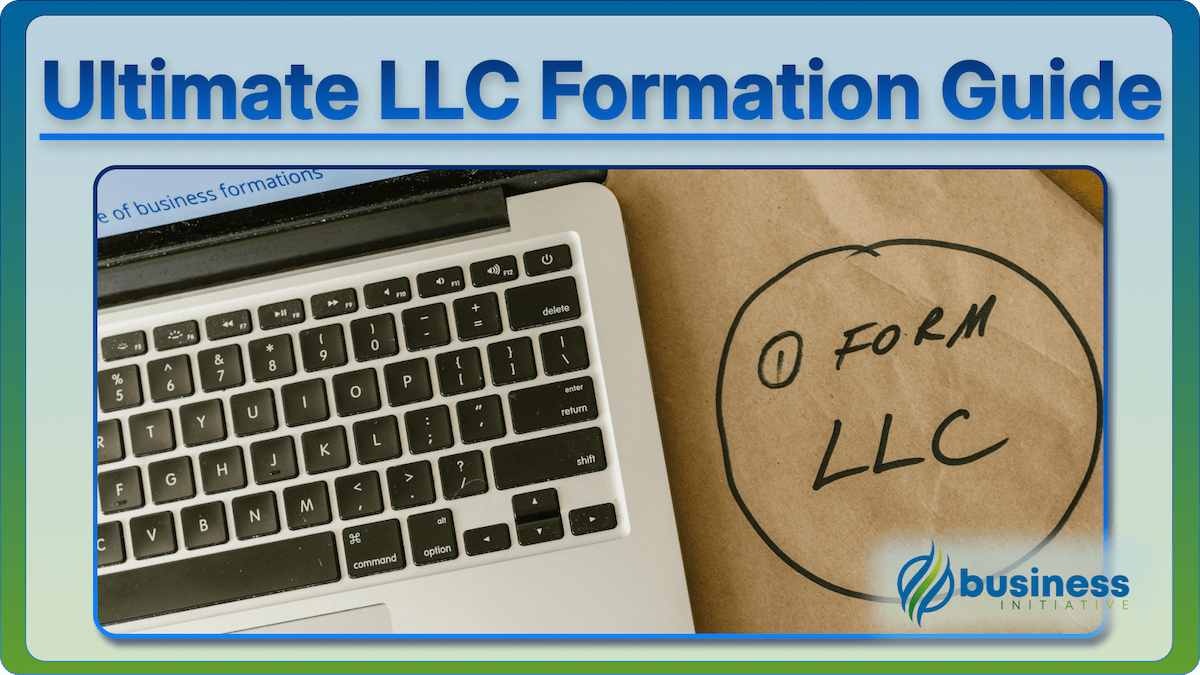You’re forming an LLC.
But everyone’s talking about S-Corp elections. Should you elect? Will it save you money? When does it help? When does it hurt?
The answer depends on your numbers.
S-Corp elections can save taxes. But they add complexity. They work for some businesses. They don’t work for others.
This guide shows you when and why.
Real scenarios. Number comparisons. When S-Corp helps. When it doesn’t. How to decide.
Read this. Understand the numbers. Make the right decision.
 Key Takeaways
Key Takeaways
- S-Corp elections can save self-employment taxes by allowing you to take distributions that aren't subject to self-employment tax, but only if you pay yourself a reasonable salary
- S-Corp elections work best when your business has significant profits above a reasonable salary—the tax savings must outweigh the added complexity and costs
- S-Corp elections require more compliance including payroll processing, reasonable compensation requirements, and additional tax filings
- S-Corp elections don't make sense for low-profit businesses, businesses with losses, or businesses that can't justify a reasonable salary
- The decision to elect S-Corp should be based on your specific numbers—calculate potential tax savings versus added costs and complexity
 Table of Contents
Table of Contents

What Is S-Corp
S-Corp is a tax election, not an entity type.
What it is:
- Tax election filed with the IRS
- Available to LLCs and Corporations
- Changes how your business is taxed
- Doesn’t change your legal structure
What it’s not:
- A separate entity type
- Required for LLCs or Corporations
- Always beneficial
- Simple to maintain
The reality: S-Corp is a tax election that can save money in the right circumstances. Understanding when it helps is key.
How S-Corp Works
S-Corp changes how you’re taxed.
Default LLC Taxation
How it works:
- LLC profits pass through to owners
- All profits subject to self-employment tax
- Self-employment tax rate: 15.3% (on income up to Social Security wage base)
- Income tax on all profits
Example:
- $100,000 profit
- $15,300 self-employment tax
- Plus income tax on $100,000
Why it matters: Default LLC taxation means all profits face self-employment tax.
S-Corp Taxation
How it works:
- You pay yourself a “reasonable salary”
- Salary is subject to payroll taxes (same as self-employment tax)
- Remaining profits are “distributions”
- Distributions are NOT subject to self-employment tax
- Income tax on all profits (salary + distributions)
Example:
- $100,000 profit
- $50,000 reasonable salary (payroll taxes apply)
- $50,000 distribution (no self-employment tax)
- Payroll taxes on $50,000 instead of $100,000
Why it matters: S-Corp can reduce self-employment taxes on distributions.
Pro tip: The tax savings come from avoiding self-employment tax on distributions. But you must pay yourself a reasonable salary first.

When S-Corp Helps
S-Corp works best in these situations:
High Profits Above Reasonable Salary
When it applies:
- Business has significant profits
- Profits exceed reasonable salary amount
- Large portion can be taken as distributions
- Tax savings exceed added costs
Example:
- $200,000 profit
- $80,000 reasonable salary
- $120,000 distribution
- Self-employment tax savings on $120,000
Why it matters: High profits create opportunity for significant tax savings.
Established Business with Consistent Profits
When it applies:
- Business is established and profitable
- Profits are consistent and predictable
- Can justify reasonable salary
- Can handle added compliance
Why it matters: Established businesses can better handle S-Corp complexity.
Multiple Owners
When it applies:
- Multiple owners sharing profits
- Each owner can take distributions
- Tax savings multiply across owners
- Compliance costs shared
Why it matters: Multiple owners can share compliance costs while each benefits from tax savings.
Pro tip: S-Corp works best when you have significant profits above a reasonable salary. The tax savings must exceed the added costs and complexity.
When S-Corp Hurts
S-Corp doesn’t make sense in these situations:
Low Profits or Losses
When it applies:
- Business has low profits
- Profits don’t exceed reasonable salary
- Business has losses
- No tax savings opportunity
Example:
- $40,000 profit
- $50,000 reasonable salary (can’t justify)
- No distribution opportunity
- Added compliance costs with no benefit
Why it matters: Low profits don’t create tax savings opportunity. Added costs aren’t worth it.
New or Unstable Business
When it applies:
- Business is new
- Profits are uncertain
- Can’t predict reasonable salary
- Compliance burden too high
Why it matters: New businesses may not have consistent profits to justify S-Corp.
Single Owner with Low Profits
When it applies:
- Single owner
- Profits barely exceed reasonable salary
- Small tax savings
- Compliance costs exceed savings
Why it matters: Small tax savings don’t justify added complexity and costs.
Pro tip: S-Corp doesn’t make sense when profits are low or uncertain. The added costs and complexity must be justified by tax savings.

Real Scenarios
Here are real-world examples:
Scenario 1: High-Profit Consulting Business
The situation:
- Solo consultant
- $150,000 annual profit
- Can justify $70,000 reasonable salary
- $80,000 available for distribution
Without S-Corp:
- Self-employment tax on $150,000
- Approximately $22,950 in self-employment tax
With S-Corp:
- Payroll taxes on $70,000 salary
- No self-employment tax on $80,000 distribution
- Approximately $10,710 in payroll taxes
- Tax savings: approximately $12,240
Verdict: S-Corp makes sense. Significant tax savings justify added costs.
Scenario 2: Low-Profit Service Business
The situation:
- Solo service provider
- $45,000 annual profit
- Can justify $40,000 reasonable salary
- $5,000 available for distribution
Without S-Corp:
- Self-employment tax on $45,000
- Approximately $6,885 in self-employment tax
With S-Corp:
- Payroll taxes on $40,000 salary
- No self-employment tax on $5,000 distribution
- Approximately $6,120 in payroll taxes
- Tax savings: approximately $765
Verdict: S-Corp may not make sense. Small tax savings may not justify added compliance costs.
Scenario 3: New Business with Uncertain Profits
The situation:
- New business
- First year operations
- Uncertain profit levels
- Can’t predict reasonable salary
Without S-Corp:
- Simple default LLC taxation
- No added compliance
With S-Corp:
- Must set up payroll
- Must determine reasonable salary
- Added compliance from day one
- May not have profits to justify
Verdict: Wait until business is established. S-Corp can be elected later when profits are clear.
Pro tip: Calculate your specific numbers. Compare tax savings to added costs. Make decision based on your situation.
S-Corp Requirements
S-Corp elections have specific requirements.
Eligibility Requirements
What’s required:
- Must be domestic entity (LLC or Corporation)
- Must have 100 or fewer shareholders
- Shareholders must be individuals, certain trusts, or estates
- Only one class of stock allowed
- Must not be an ineligible corporation (insurance, financial institution, etc.)
Why it matters: Not all businesses are eligible for S-Corp election.
Reasonable Compensation
What’s required:
- Must pay yourself reasonable salary
- Salary must reflect fair market value
- IRS can challenge unreasonable salaries
- Must pay payroll taxes on salary
Why it matters: Reasonable compensation is required. Too low risks IRS challenge.
Payroll Processing
What’s required:
- Must process payroll for salary
- Must withhold and pay payroll taxes
- Must file payroll tax returns
- Must issue W-2 forms
Why it matters: Payroll processing adds cost and complexity.
Additional Tax Filings
What’s required:
- Must file Form 1120-S (S-Corp tax return)
- Must file K-1 forms for each owner
- More complex than default LLC taxation
Why it matters: Additional filings add cost and complexity.
Pro tip: S-Corp requirements add significant compliance burden. Make sure tax savings justify the added work. See our compliance guide for entity requirements.

How to Decide
Use this framework to decide:
Step 1: Calculate Your Profits
What to do:
- Estimate annual business profits
- Be realistic and conservative
- Consider growth potential
Why it matters: Profits determine tax savings opportunity.
Step 2: Determine Reasonable Salary
What to do:
- Research fair market salary for your role
- Consider your industry and experience
- Be conservative in estimates
- Ensure salary is defensible
Why it matters: Reasonable salary determines distribution opportunity.
Step 3: Calculate Potential Tax Savings
What to do:
- Calculate self-employment tax on all profits (without S-Corp)
- Calculate payroll taxes on salary + no tax on distributions (with S-Corp)
- Compare the difference
- This is your potential tax savings
Why it matters: Tax savings must justify added costs.
Step 4: Estimate Added Costs
What to do:
- Payroll processing costs
- Additional tax preparation costs
- Time and complexity costs
- Total added costs
Why it matters: Added costs reduce net benefit.
Step 5: Make the Decision
What to consider:
- Tax savings vs. added costs
- Your ability to handle compliance
- Business stability and profit consistency
- Growth potential
Decision rule: Elect S-Corp if tax savings significantly exceed added costs and you can handle compliance.
Pro tip: Consult with a tax professional for your specific situation. They can help you calculate exact numbers and make the right decision. See our entity type decision tree for broader entity selection guidance.
Your Next Steps
Understand the numbers. Calculate your situation. Make the right decision.
This Week:
- Review this guide
- Estimate your business profits
- Research reasonable salary for your role
- Calculate potential tax savings
This Month:
- Compare tax savings to added costs
- Consult with tax professional if needed
- Make S-Corp election decision
- File election if beneficial (Form 2553)
Going Forward:
- Monitor your business profits
- Reassess S-Corp election annually
- Adjust salary as business grows
- Maintain compliance requirements
Need help? Check out our entity type decision tree for broader entity selection, our compliance guide for entity requirements, and our LLC formation guide for detailed formation information.
Stay informed about business strategies and tools by following us on X (Twitter) and signing up for The Initiative Newsletter.
FAQs - Frequently Asked Questions About S‑Corp or Not? A Simple, Numbers-First Guide for Confused Founders

What is an S-Corp election, and how is it different from forming an LLC?
An S-Corp is a tax election filed with the IRS that changes how your business is taxed—it's not a separate entity type. Your LLC remains an LLC; it just gets taxed differently.
Learn More...
Many founders confuse S-Corp with a type of business entity, but it's actually a tax classification. You form an LLC (or corporation) as your legal entity, then separately elect S-Corp tax treatment by filing Form 2553 with the IRS. Your legal structure doesn't change—only how the IRS taxes your business income changes.
This distinction matters because it means you can start as a default LLC and elect S-Corp status later when it makes financial sense. You're not locked into a permanent decision at formation.
How does S-Corp taxation reduce self-employment taxes compared to a default LLC?
With an S-Corp, you pay yourself a reasonable salary (subject to payroll taxes) and take remaining profits as distributions that are NOT subject to the 15.3% self-employment tax.
Learn More...
In a default LLC, all business profits are subject to self-employment tax at 15.3% (covering Social Security and Medicare). With S-Corp taxation, you split income into two categories: a reasonable salary (which still has payroll taxes) and distributions (which are only subject to income tax, not self-employment tax).
For example, with $100,000 in profit: a default LLC pays self-employment tax on the full $100,000 (approximately $15,300). An S-Corp with a $50,000 reasonable salary pays payroll taxes only on $50,000, while the other $50,000 distribution avoids self-employment tax—saving approximately $7,650.
At what profit level does electing S-Corp status start making financial sense?
S-Corp generally makes sense when your business consistently earns significantly more than what you'd need to pay yourself as a reasonable salary—typically when profits exceed $80,000-$100,000 annually.
Learn More...
The math works when there's a meaningful gap between your total profits and your reasonable salary. If your business earns $150,000 and you pay yourself a $70,000 salary, the $80,000 distribution avoids self-employment tax, saving roughly $12,240. That easily justifies the $2,000-$5,000 in added annual costs for payroll processing and additional tax filings.
However, if your business only earns $45,000 and a reasonable salary for your role is $40,000, only $5,000 escapes self-employment tax, saving roughly $765—which doesn't cover the added compliance costs. The breakeven point depends on your specific salary requirements and compliance costs.
What are the added compliance requirements and costs of maintaining S-Corp status?
S-Corp requires running formal payroll with tax withholding, filing Form 1120-S annually, issuing K-1 forms to owners, and maintaining reasonable compensation documentation.
Learn More...
S-Corp compliance adds several layers: you must process formal payroll (including withholding and depositing payroll taxes), file quarterly payroll tax returns, issue W-2 forms to yourself, file Form 1120-S (the S-Corp tax return) annually, and prepare Schedule K-1 forms for each owner.
These requirements typically cost $2,000-$5,000 per year for payroll processing services and additional tax preparation. You also must document that your salary is 'reasonable compensation' for your role, as the IRS can challenge unreasonably low salaries set to minimize payroll taxes. This compliance burden is why S-Corp doesn't make sense when the tax savings are small.
When should a new or uncertain business wait before electing S-Corp status?
New businesses with uncertain profits, unpredictable revenue, or no track record should wait until the business is established and profits are consistent before electing S-Corp.
Learn More...
S-Corp election locks you into payroll processing and additional compliance from day one, even if your profits don't justify it. For a new business, you may not know what a reasonable salary looks like, your profits may fluctuate wildly, and the compliance burden adds stress to an already demanding startup phase.
The smart approach is to start as a default LLC, focus on building the business, and monitor your profits over 12-18 months. Once you have consistent, predictable profits that significantly exceed a reasonable salary, you can elect S-Corp status for the following tax year. You can always add S-Corp taxation later—you can't easily remove the compliance burden once you've started.
What happens if the IRS determines your S-Corp salary is unreasonably low?
The IRS can reclassify distributions as wages, requiring you to pay back payroll taxes plus penalties and interest on the reclassified amount.
Learn More...
If the IRS determines your salary doesn't reflect fair market value for the work you do, they can reclassify some or all of your distributions as wages subject to payroll taxes. You'd then owe the unpaid payroll taxes plus penalties and interest, potentially eliminating any tax savings you gained.
To avoid this, research what similar roles pay in your industry and location, document your reasoning for the salary you chose, and err on the side of paying yourself a defensibly reasonable amount. Common red flags include paying yourself minimum wage while taking large distributions, or setting a salary far below industry norms for your role and experience level.
How do you calculate whether S-Corp election will actually save you money in your specific situation?
Estimate your annual profits, determine a defensible reasonable salary, calculate self-employment tax savings on the difference, then subtract added payroll and tax preparation costs.
Learn More...
Follow this five-step calculation: (1) Estimate annual business profits conservatively. (2) Research and set a reasonable salary for your role. (3) Calculate self-employment tax on all profits without S-Corp (profits x 15.3%). (4) Calculate payroll taxes on salary only with S-Corp (salary x 15.3%), noting that distributions escape this tax. (5) Subtract added S-Corp costs (payroll service, additional tax prep, compliance time) from the tax savings.
If the net savings after deducting all added costs is meaningful—typically at least $3,000-$5,000 per year—S-Corp makes sense. If savings are under $2,000, the added complexity probably isn't worth it. When in doubt, consult a tax professional who can run the exact numbers for your situation.
Sources & Additional Information
This guide provides general information about S-Corp elections. Specific tax implications and requirements vary by individual situation.
For entity type selection, see our Entity Type Decision Tree.
For compliance requirements, see our Compliance Guide.
For detailed formation guidance, see our Ultimate Guide to Forming an LLC.
Consult with a tax professional for advice specific to your situation.


